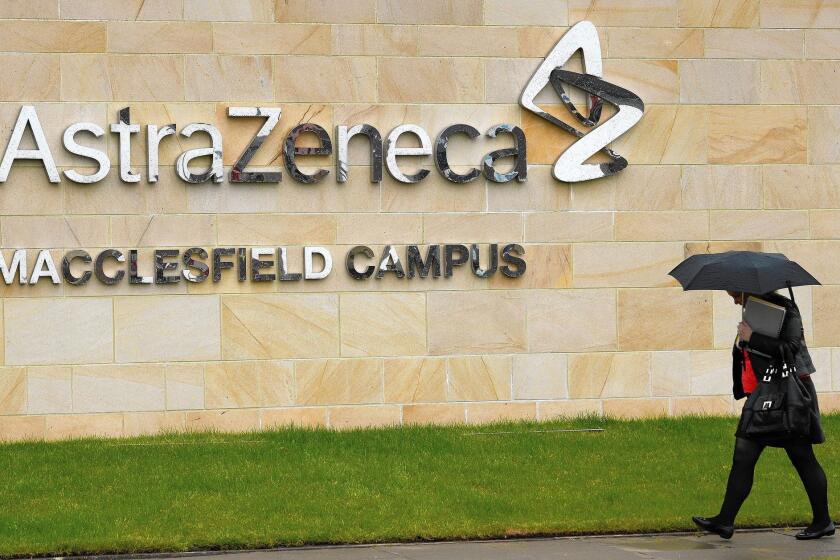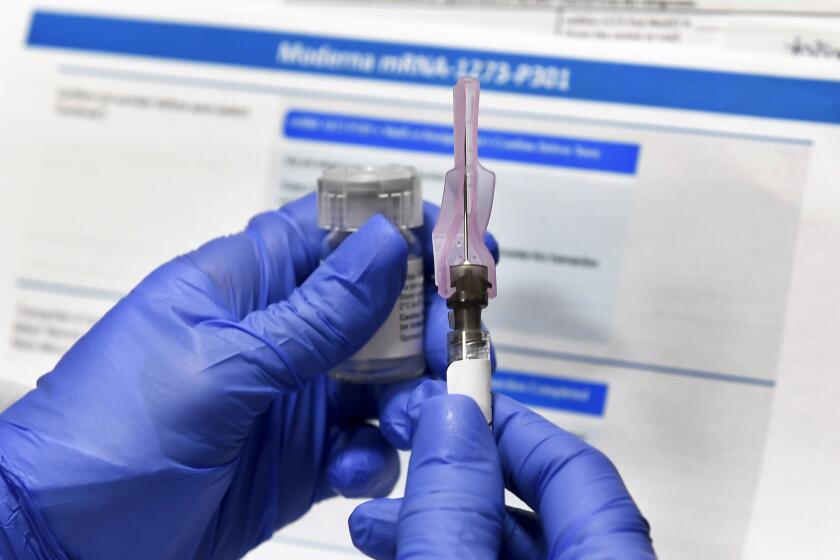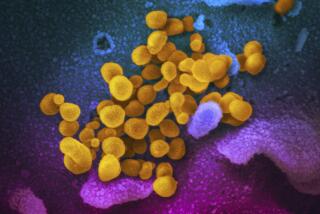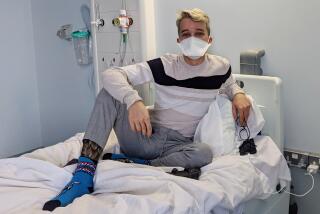Halted coronavirus vaccine study shows ‘no compromises’ on safety, NIH says
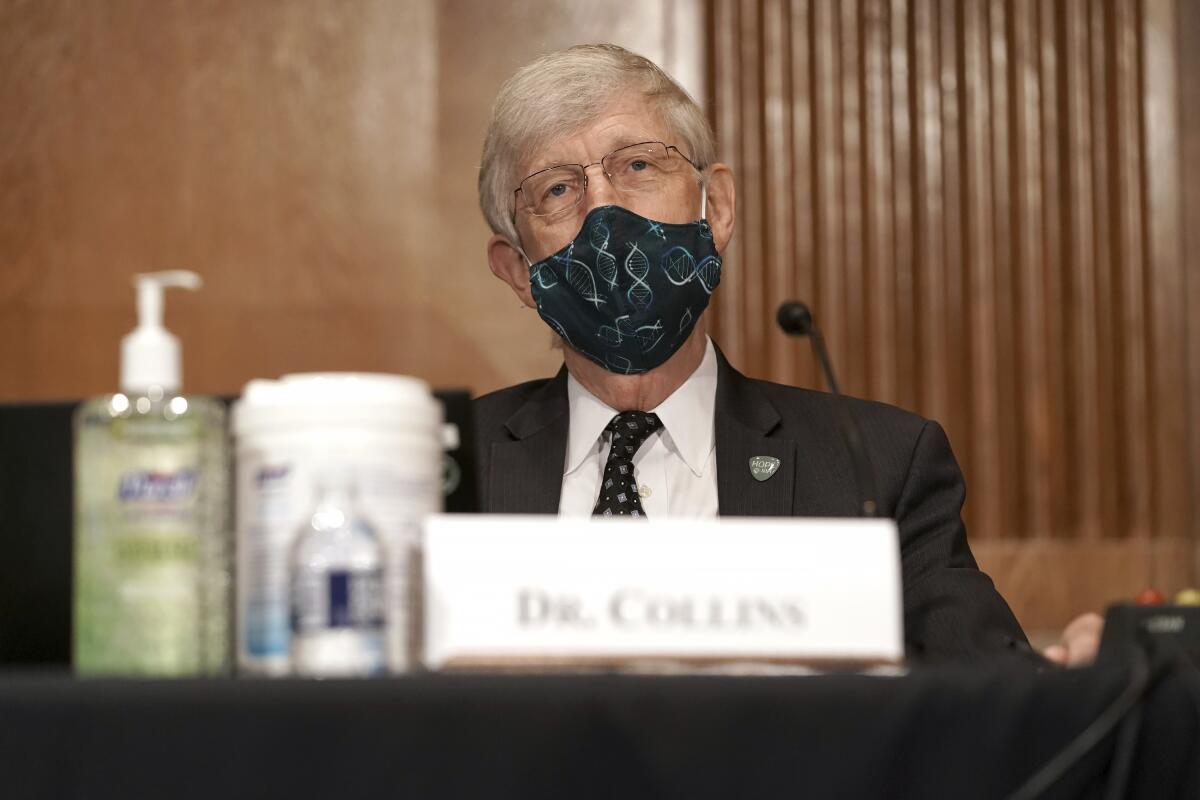
- Share via
AstraZeneca’s suspension of final testing of its potential coronavirus vaccine while it investigates a volunteer’s illness shows there will be “no compromises” on safety in developing the shots, the director of the National Institutes of Health told Congress on Wednesday.
“This ought to be reassuring,” Dr. Francis Collins said before a Senate committee. “When we say we are going to focus first on safety and make no compromises, here is Exhibit A of how that is happening in practice.”
Late Tuesday, AstraZeneca announced its final-stage studies are on temporary hold while the company looks into whether a test subject’s illness is a side effect of the shot or a coincidence. The company gave no details on the illness, but Collins said it involved a “spinal problem.”
Behind-the-scenes safety monitors in Britain paused vaccinations while alerting their safety counterparts in the U.S., said Dr. Moncef Slaoui of Operation Warp Speed, the Trump administration’s vaccine development program.
Late last month, AstraZeneca began recruiting 30,000 people in the U.S. for its largest study of the vaccine. It also is testing the vaccine, developed by Oxford University, in thousands of people in Britain and in smaller studies in Brazil and South Africa.
A pause in a major vaccine trial shows why Trump can’t rush science.
AstraZeneca said the pause in vaccinations covers studies in the U.S. and other countries.
Scientists around the world have been scrambling to develop a vaccine against the coronavirus since the outbreak began. Nearly 900,000 deaths have been reported in the pandemic.
Two other vaccines are in huge, final-stage tests in the United States, one made by Moderna Inc. and the other by Pfizer and Germany’s BioNTech. Those two vaccines work differently from AstraZeneca’s, and the studies already have recruited about two-thirds of the needed volunteers. Three additional experimental vaccines are set to enter huge, late-stage testing later this year.
Earlier-stage studies of AstraZeneca’s vaccine hadn’t revealed any serious side effects.
The company’s announcement comes amid worries that President Trump will pressure the U.S. Food and Drug Administration to approve a vaccine before it’s proved to be safe and effective.
Collins said Wednesday that the decision will be based on science alone and that he will roll up his sleeve to get vaccinated once that happens.
He expressed “cautious optimism” that one of the vaccines being tested will pan out by the end of the year but warned: “Certainly to try to predict whether it happens on a particular week before or after a particular date in early November is well beyond anything that any scientist right now could tell you.”
Top executives of nine drugmakers likely to produce the first coronavirus vaccines signed a pledge to boost public confidence in approved vaccines.
It’s not uncommon for pauses in research to investigate if an unexpected health complaint is really related to a vaccine or not, he told senators worried about what the AstraZeneca suspension means for that year-end goal.
“The reason we’re investing not in one but six different vaccines is because of the expectation that they won’t all work,” Collins said.
The trial’s suspension came just hours after AstraZeneca and eight other drug makers issued an unusual pledge, vowing to uphold the highest ethical and scientific standards in developing their vaccines.
The U.S. has invested billions of dollars in efforts to quickly develop multiple vaccines against the coronavirus. But public fears that a vaccine is unsafe or ineffective could be disastrous, derailing the effort to vaccinate millions of Americans.
